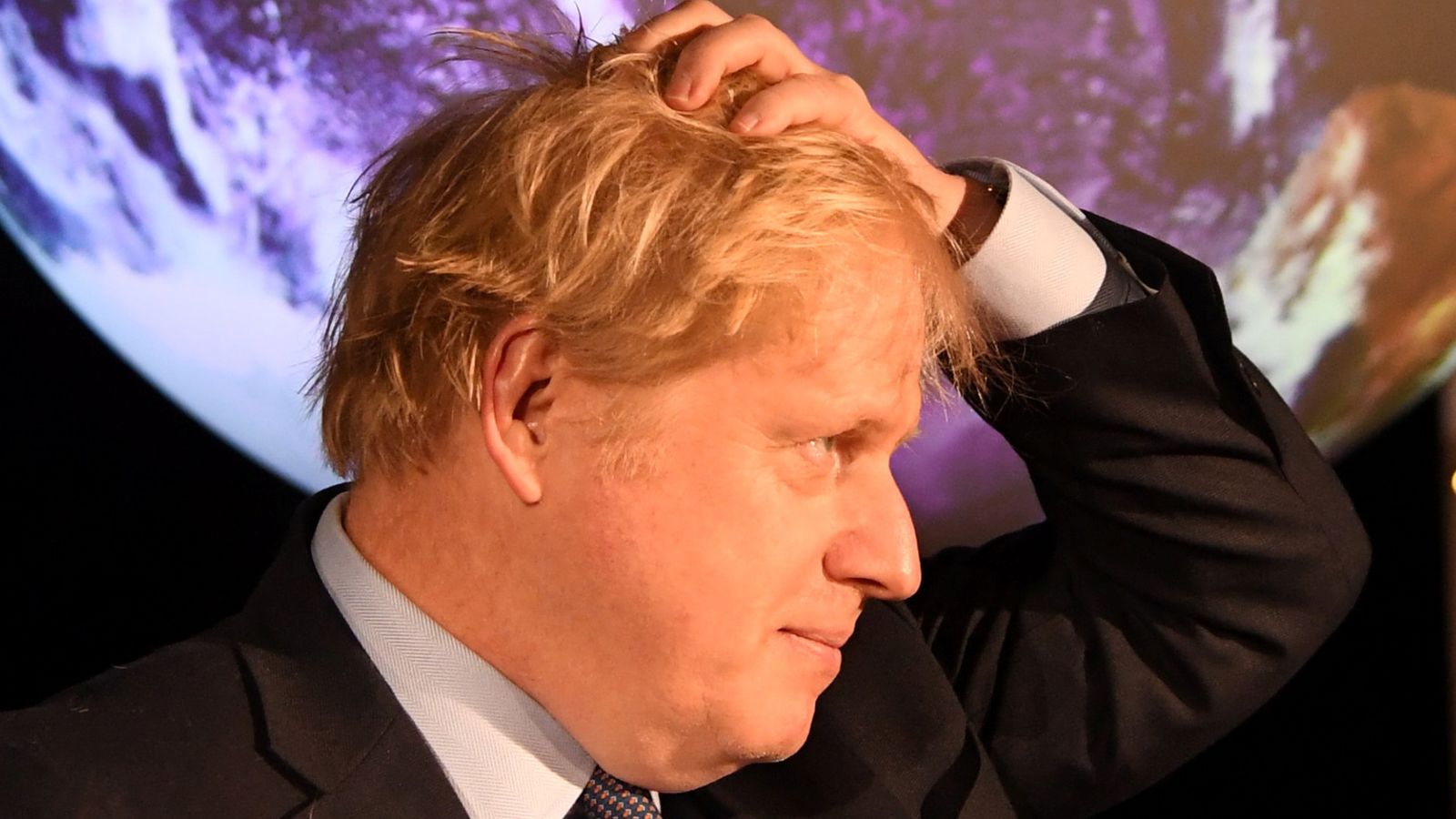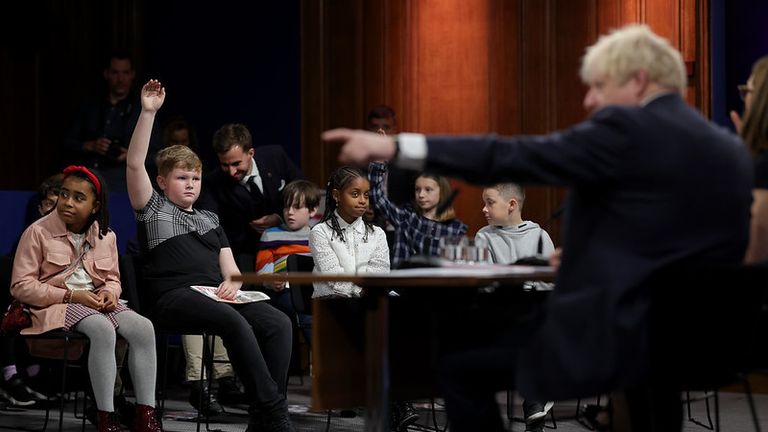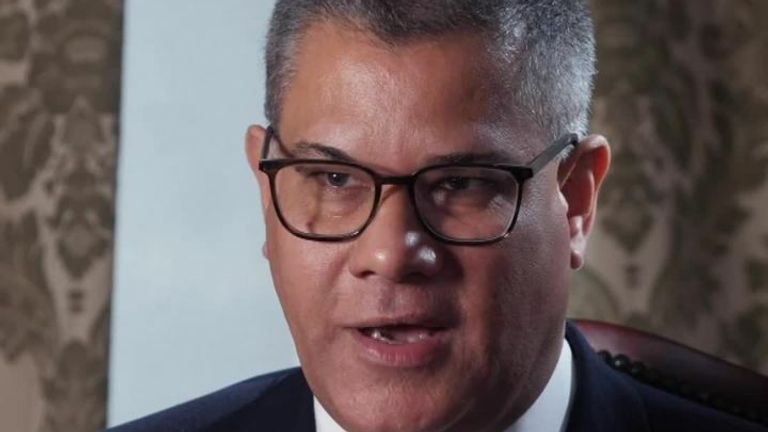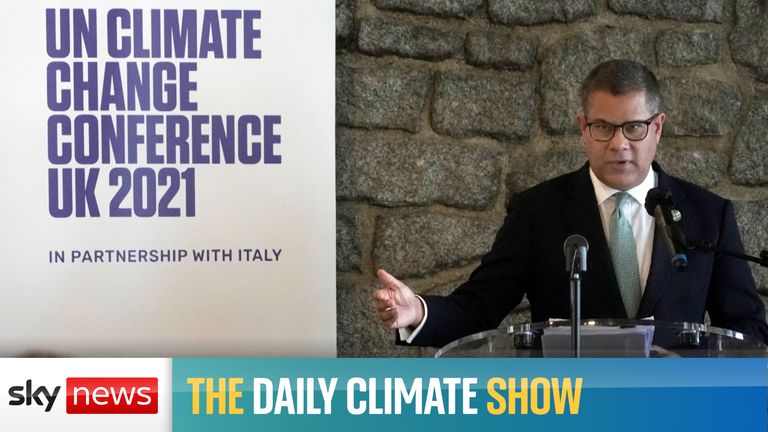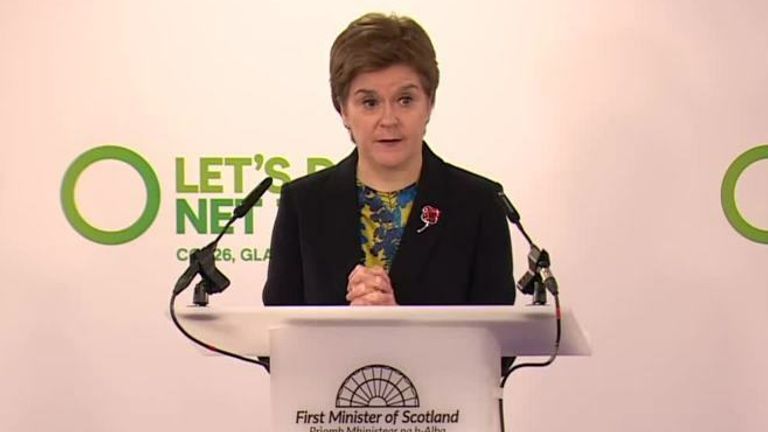Boris Johnson on Friday warned that “team world” was “5-1” down at half-time in the fight to tackle global warming, as he implored world leaders to act now on the eve of two global gatherings of world leaders.
Speaking to journalists en route to the G20 in Rome, the prime minister acknowledged the scale of the task ahead but also stressed the alternative was apocalyptic and could consign future generations to shortages of food, conflict and mass migrations, all caused by global warming.
“Humanity as a whole, at half-time, is about 5-1 down,” he told journalists.
“We have got a long way to go, but we can do it. We have the ability to equalise, to save the position, to come back, but it will take a huge amount of effort.”
Referencing the rise and fall of the Roman Empire, Mr Johnson said: “Things can go backwards as well as forwards.
“Unless we get this right in tackling climate change we could see our civilisation, our world, also go backwards, and we could consign future generations to a life that is far less agreeable than our own.
“We could consign our children, our grandchildren, our great-grandchildren to a life in which there are not only huge movements of populations and huge migrations, but also shortages of food, shortages of water, of conflict caused by climate change and there is absolutely no question that this is a reality that we must face.
“Look at evidence of the decline and fall of the Roman Empire if you doubt what I say, when Rome fell humanity became far less literate overall, people lost the ability to read and write, they lost the ability to draw properly, they lost the ability to build in the way the Romans did.
“Things can go backwards, and they can go backwards at a really terrifying speed.”
With 80% of all global emissions coming from the G20 group of industrialised countries, progress this week in Rome is seen as critical to the success of COP26, the annual climate summit in Glasgow which is meant to put in place national commitments from individual countries to hit emission targets of 2% and below by 2050.
Earlier this month, Alok Sharma, the UK’s COP president, challenged China, India and Saudi Arabia to deliver on G20 promises made months ago and come up with better formal targets in an interview with the Financial Times.
On the fight to Rome, the PM stressed progress was being made, with 17 nations of the G20 now committing to net-zero by 2050.
But two of the top three of the world’s largest emitters – China and India – have so far failed to commit to getting to net-zero by 2050.
When I asked the PM whether he thought he could get China and India to ratchet up their commitments, he acknowledged the “big struggle” ahead to hit global emissions targets on the eve of the COP26 summit.
“Team world is up against a very formidable opponent in climate change, and we’ve got to a lot to do,” he said.
“It’s time to get out our oranges and get back on the pitch. It’s very tough, and we are going to have to see a lot of progress in the next few days from the countries mentioned.”
While China has drawn up a blueprint to reduced emissions, there is frustration from leaders that the world’s largest emitter of greenhouse gases – 27% of total in 2019 – isn’t going faster: China has committed to peak carbon emissions before 2030 and net-zero by 2060, but has indicated it is both unable and unwilling to move further.
US special envoy on climate change John Kerry has said the world will miss its global emissions targets unless this happens.
Mr Johnson, who spoke with President Xi on Friday, said he had pushed the Chinese leader to bring down the peak in emissions to 2025 and pressed him in phasing out coal.
“Where I was evangelical was the potential to move away from coal. He said China depends on it for our domestic economy. I said so many times from the UK moving from 80% dependency on coal for electricity to one percent today.
“I said when I came to see you in Beijing in 2008 we were 40% dependent on coal, and it shows how fast you can make the transition.”
The PM said leaders “were not going to stop global warming in Rome or in this meeting in COP” but said he hopes to slow the increase.
He also said he was keen to accelerate the global approach.
“Is there a way to accelerate the way the world engages in this faster than the quinquennial [every five years] approach? The UK is very keen to look at that. It is a matter for the UN. It is a matter for the COP,” the PM said.
The PM also had a message for India’s Prime Minister Narendra Modi on the flight over to Rome: “India has done brilliantly on renewables – his solar alliance is fantastic, but we need to see more from the NDC [India’s plan to reduce emissions].”
Watch the Daily Climate Show at 6.30pm Monday to Friday on Sky News, the Sky News website and app, on YouTube and Twitter.
The show investigates how global warming is changing our landscape and highlights solutions to the crisis.
